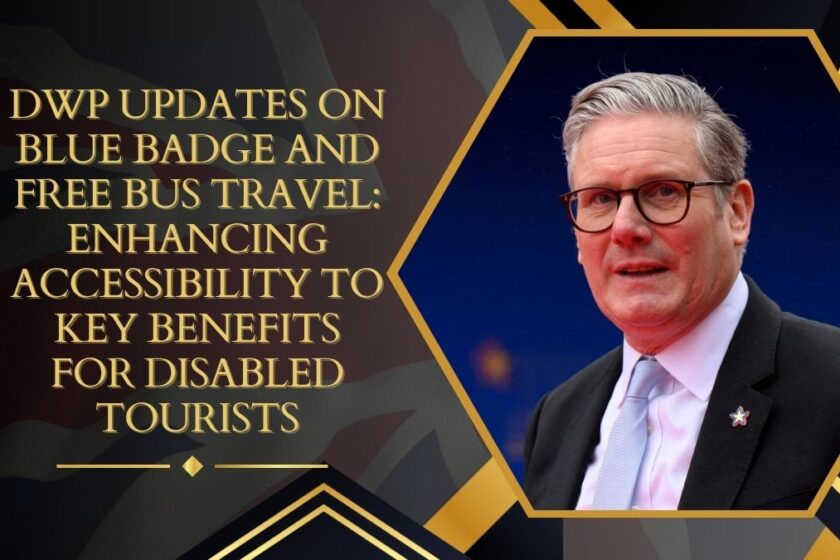The Department for Work and Pensions (DWP) has reassured the public that changes to Personal Independence Payment (PIP) eligibility will not impact critical benefits such as the Blue Badge scheme and free bus travel for current recipients. This update is particularly important for the disabled community, ensuring uninterrupted access to vital transportation services, even amid possible welfare reforms.
This confirmation comes at a time of growing concern in Parliament over the implications of revising PIP criteria. During a recent debate, Dr. Lauren Sullivan, a Labour MP, questioned the effect of PIP adjustments on access to “passported” benefits. In response, Secretary of State Liz Kendall emphasized that existing PIP claimants will continue to be eligible for related services like free parking permits and public transport passes, regardless of upcoming assessments.
Why Blue Badge and Free Bus Travel Matter to Disabled Tourism
For people with disabilities, Blue Badges and free bus passes are more than conveniences—they are essential tools for maintaining independence and mobility. These benefits eliminate significant barriers to travel, allowing easier access to public spaces, city centers, and cultural landmarks.
The ability to park close to tourist attractions or access affordable public transport empowers disabled individuals to participate more fully in leisure and tourism activities. Many UK destinations require extensive walking or navigating narrow pathways, and without accessible options, they would remain off-limits to many tourists with mobility limitations.
By maintaining these services, the DWP ensures that disabled travelers can continue enjoying the same level of access to tourism as their non-disabled peers. This commitment also aligns with broader UK goals to enhance inclusive tourism infrastructure and create a welcoming environment for all.
The Motability Scheme: Enhancing Travel Freedom
The Motability scheme stands as another pillar of support for disabled individuals. It allows eligible PIP recipients to lease vehicles, scooters, or powered wheelchairs, along with receiving comprehensive services such as insurance, breakdown cover, and maintenance.
Despite concerns about the scheme’s cost—over £3 billion annually—raised by MPs like Danny Kruger, it remains indispensable. For disabled tourists, the ability to travel across regions in a personal vehicle, especially to rural or hard-to-reach areas, vastly improves their travel experience.
With this scheme, disabled visitors can plan longer, more flexible trips and are not limited by the constraints of public transport. Whether exploring national parks or coastal towns, the Motability program grants them the freedom and comfort to enjoy UK tourism to its fullest.
Economic Advantages of Accessible Tourism
The benefits of supporting disabled travelers extend beyond individual convenience—they have a positive economic impact. The disabled tourism sector contributes billions to the UK economy, with visitors spending on accommodation, attractions, restaurants, and local services.
By ensuring that disabled tourists have seamless access to transport benefits, the government encourages longer stays and increased spending. Accessible travel infrastructure not only improves the lives of disabled people but strengthens the sustainability of the tourism industry overall.
Accessible tourism is both a legal obligation and a smart economic strategy. Businesses and destinations that invest in accessibility tap into a loyal and growing market segment, enhancing customer satisfaction and retention.
Moving Forward: Building a More Inclusive Tourism Sector
Looking ahead, the UK is committed to becoming a global leader in accessible tourism. The recent reassurances from the DWP regarding the continuity of Blue Badges, free bus travel, and the Motability scheme represent just one part of a larger vision.
Accessibility improvements—such as wheelchair-friendly hotel rooms, assistive technology in tourist sites, and inclusive transportation options—are becoming standard. Tourism stakeholders across the country are adapting to meet the needs of disabled guests, offering equal access and enriching experiences for all.
These developments ensure that disabled tourists feel welcomed and empowered, with the same opportunities to explore and enjoy the UK as everyone else. The government’s ongoing commitment, reflected in recent policies, reaffirms its dedication to a more accessible, inclusive, and prosperous tourism industry.
Conclusion
The UK government’s assurance that Blue Badge permits, free bus travel, and the Motability scheme will remain available to PIP recipients marks a major victory for disabled individuals and the tourism industry alike. By maintaining these critical benefits, the DWP supports independent travel, encourages economic growth through accessible tourism, and strengthens the UK’s reputation as an inclusive travel destination. As accessibility continues to shape the future of tourism, these efforts promise better experiences for all.
FAQs
1. Will changes to PIP eligibility affect my access to Blue Badge or free bus travel?
No. The DWP has confirmed that existing PIP recipients will continue to receive Blue Badges and free bus travel, regardless of any upcoming changes to PIP assessments.
2. What is the Motability scheme and how can I apply for it?
The Motability scheme allows eligible individuals receiving the enhanced rate of the mobility component of PIP to lease a car, scooter, or powered wheelchair. Applications can be made through the official Motability website or approved dealerships.
3. Do these transport benefits help disabled tourists in rural areas?
Yes. Motability vehicles provide greater access to remote areas where public transport is limited, enabling disabled tourists to explore national parks, countryside, and coastal destinations more easily.
4. Are tourism sites in the UK improving their accessibility features?
Yes. Many hotels, museums, and transportation providers are investing in ramps, lifts, accessible rooms, and assistive technologies to ensure a comfortable and inclusive experience for disabled visitors.
5. How does accessible tourism benefit the economy?
Accessible tourism contributes billions annually to the UK economy by encouraging longer and more frequent visits by disabled travelers, who spend on lodging, food, entertainment, and attractions just like other tourists.

